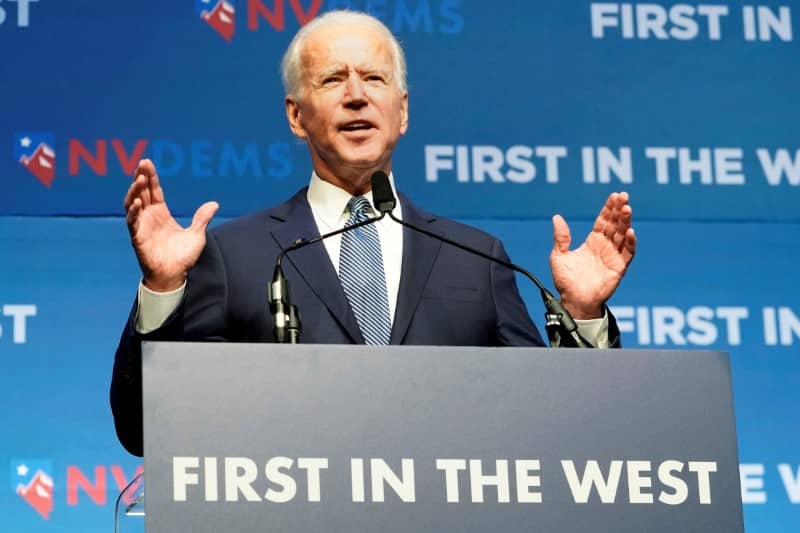Democratic U.S. presidential candidate Joe Biden, who wears the nickname “working class Joe” with pride and courts a multi-racial voter base, faces a stern test of his ability to win nationally in Nevada’s mining towns and unionized gambling parlors.
Nevada’s Feb. 22 nominating contest is the third one in the state-by-state process of picking a Democratic nominee to face Republican President Donald Trump in the Nov. 3 general election. The former vice president’s advisers have said Biden’s strength in the Democratic race will show in racially diverse states such as Nevada, with its large Latino population, and South Carolina, with its sizable black population.
Even if Biden does not win in predominantly white Iowa on Feb. 3 or New Hampshire on Feb. 11 – the states with the first two nominating contests – he is expected to make up the ground once the race moves onto Nevada, then South Carolina on Feb. 29 and the 14 states holding contests on Super Tuesday on March 3, according to his advisers.
In Nevada, where candidates must appeal to miners and casino workers among others who make up the Democratic electorate, Biden faces a tough challenge from rival Bernie Sanders. The state also has larger proportions of black and Asian residents than Iowa and New Hampshire and a bigger share of residents who did not graduate from college, testing his appeal to blue-collar voters.
Edward Mercado, 72, a retired car-assembly worker, said Biden’s experience as Barack Obama’s vice president for eight years was a key reason for his support, adding that no current candidate matches the former president’s charisma.
“There’s a lot of them that stand out but you have to go with experience,” specifically Biden’s experience under Obama, Mercado said.
Biden, who was touring the state on Saturday as part of a two-day campaign swing, invested in Nevada early in his campaign and carved out a clear lead in opinion polls in the state. His campaign opened six offices across the state and hired about 50 staff members.
Biden drew a standing-room only crowd on Friday to a high school gymnasium in Sparks, Nevada.
“No one deserves to be our Democratic nominee unless they are able to build a broad and diverse coalition of voters,” said Vedant Patel, spokesman for Biden’s campaign in Nevada, citing endorsements and support from the Latino, black, Asian and Pacific Islander communities.
Yet Biden finds himself in an increasingly competitive race with Sanders, the U.S. senator who came close to winning the 2016 Nevada caucus and finds support with some of the same voters.
A Reuters/Ipsos poll released on Thursday showed Biden with a slight advantage among registered Democrats nationally, though Sanders had the most support when independents were included.
In Nevada, Sanders was tied with Biden among Latino voters and he trailed Biden by 6 percentage points overall, according to a Fox News poll released on Thursday.
Sanders’ appeal was clear during a town hall hosted by Culinary Local 226, a union that represents hotel workers on the Las Vegas strip. Of several candidates appearing in a series of events last month, Sanders received the most raucous welcome.
Biden and Sanders face criticism from some voters on policy stances important in Nevada. Some workers are concerned that Sanders’ Medicare for All healthcare proposal could replace their hard-won union healthcare coverage. And some voters grimace at the deportations that occurred when Biden was vice president.
(Reporting by Trevor Hunnicutt; Additional reporting by John Whitesides in Washington and Sharon Bernstein in Las Vegas; Editing by Will Dunham)

























 Continue with Google
Continue with Google